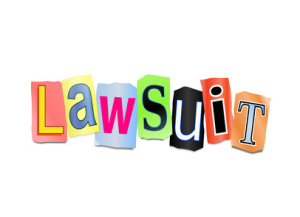Being served with papers in a California collection lawsuit doesn’t generally help your critical thinking process.
In fact, that surge of adrenaline seems to blur the eyes and fog the brain.
So when you scan the lawsuit papers and see a date, months down the road, you exhale and set the problem aside for another day.
Serious mistake.
The date you picked out is the date set for a case management conference in the California Superior Court.
That date is long after you need to act to protect yourself.
Answer or lose on the spot
Your answer to the collection lawsuit is due 30 days after you are served.
No date is typed out because the clerk issuing the California summons can’t know when you’ll be served with the complaint.
The summons form has a summary of what you have to do to defend yourself printed right on its face.
Here’s a blank California summons.
What your answer does
The summons sets a date for the case management conference. That date is meaningless unless you’ve filed an answer and laid out what’s in dispute in the lawsuit.
- Are you really the person who owes the money?
- Have they calculated the debt correctly?
- Has the statute of limitations passed?
If you file an answer to the complaint that sets out your side of the story, a judge will hold a trial if necessary to determine the truth of the matter.
Court date is only housekeeping
The case management conference, the date that appears in the papers, is the judge’s first look at the case. It’s a time to assess what the issues for trial are, how soon the case will be ready, and what motions might be required.
It does no good to appear at the case management conference, expecting to argue the case if you haven’t filed an answer, in writing, and served it on the plaintiff who filed the case.
Been served with a collection suit?
Sit down and read the papers, line for line.
The California courts have an online help center for people without a lawyer.
If you can’t bring yourself to read it, see a lawyer who can assess the situation. Here’s a list of bar association referral panels in California.
Maybe you want to answer; maybe you concede the debt, and want to pay. Maybe it’s time to consider bankruptcy.
But whatever your approach, don’t wait til the date on the papers for a California collection lawsuit to take action. It may well be too late.
More
What happens if you ignore the suit
Is it too late for bankruptcy?
Should you pay up or file bankruptcy
Image: © creative soul – Fotolia.com






